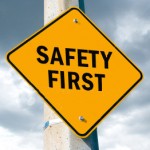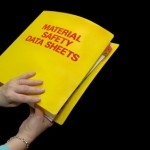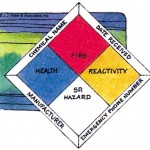Plans/Programs
 Environmental Health & Safety Audit: Companies should consider a baseline Environmental Health & Safety Audit for their workplace(s). Utilizing an audit checklist that incorporates all of the updated Title 8 and Title 22 California Code of Regulations (CCR), EHSConsult conducts comprehensive audits to identify environmental health & safety-related areas that need to be developed or enhanced from an OSHA/EPA regulatory perspective. Upon completion, a thorough report detailing the findings, observations, and good practices noted during the audit is prepared and provided to company management.
Environmental Health & Safety Audit: Companies should consider a baseline Environmental Health & Safety Audit for their workplace(s). Utilizing an audit checklist that incorporates all of the updated Title 8 and Title 22 California Code of Regulations (CCR), EHSConsult conducts comprehensive audits to identify environmental health & safety-related areas that need to be developed or enhanced from an OSHA/EPA regulatory perspective. Upon completion, a thorough report detailing the findings, observations, and good practices noted during the audit is prepared and provided to company management.
Injury & Illness Prevention Program: As an umbrella program for a variety of Cal/OSHA requirements, this mandatory Cal/OSHA program results in frequent citations for employers. The IIPP is the first company plan that an inspector will request during an inspection. EHSConsult develops and can help to implement all of the necessary components of an IIPP.
Injury & Illness Prevention Program Training: Companies with more than 10 employees are required to have a written Injury & Illness Prevention Program (IIPP) in the state of California. It is further required that all employees receive training on the IIPP. The components of an IIPP that require employee training include having:
- an individual in charge of the program from within the company
- an inspection program in place to identify, evaluate, and eliminate workplace hazards
- methods to correct unsafe or unhealthy conditions in a timely manner
- a safety training program for employees
- a means to communicate with employees about health and safety matters
- a way to enforce and/or discipline employees for the violation of safety rules
- a record keeping system regarding training and medical surveillance
 Hazard Communication Program: This program, also known as “The Right to Know” law, is a required Cal/OSHA program for companies that have hazardous materials on the premises. Cal/OSHA requires that all companies who use, or store, hazardous materials in the workplace receive hazard communication training. Material Safety Data Sheets (MSDS) are the primary way of sharing this information with employees. Chemical manufacturers are required to provide employers with MSDS(s). Employers are in turn required to place MSDS(s) on-site so that they are available to employees at all times. EHSConsult can provide the necessary training and program development to assure your workplace is in compliance with this required standard.
Hazard Communication Program: This program, also known as “The Right to Know” law, is a required Cal/OSHA program for companies that have hazardous materials on the premises. Cal/OSHA requires that all companies who use, or store, hazardous materials in the workplace receive hazard communication training. Material Safety Data Sheets (MSDS) are the primary way of sharing this information with employees. Chemical manufacturers are required to provide employers with MSDS(s). Employers are in turn required to place MSDS(s) on-site so that they are available to employees at all times. EHSConsult can provide the necessary training and program development to assure your workplace is in compliance with this required standard.
Hazard Communication Training: All employees who work with hazardous materials must have hazard communication training. This training is also known as “The Right to Know” law and requires that employees know where/how to find information on the chemicals (hazardous materials) they are working with. The most common method for obtaining that information is with the Material Safety Data Sheet (MSDS). It is required under Title 8 of the California Code of Regulations that all manufacturers of hazardous materials provide companies with an MSDS(s) for that hazardous material(s). The MSDS has pertinent information related to the physical characteristics of the hazardous material along with first aid information regarding to what to do if you are exposed. MSDS binders for workplace hazardous materials must be kept in an area where workers have access to such information. Labeling requirements are also a major part of the Hazard Communication Program. Primary and secondary labeling requirements are discussed during training so that employees have an understanding about how hazardous materials should be labeled. Storage of hazardous materials is also a very important part of this training. The compatibility (e.g., acids & bases) of different hazardous materials is very important when storing chemicals together.
 Lockout/Blockout: This Cal/OSHA program is required for companies who have their employees conduct maintenance work on equipment. This is especially pertinent with regard to electrical work. This Cal/OSHA standard requires that employees utilize an approved procedure to lock and/or block out (LO/BO) the equipment prior to working on it.
Lockout/Blockout: This Cal/OSHA program is required for companies who have their employees conduct maintenance work on equipment. This is especially pertinent with regard to electrical work. This Cal/OSHA standard requires that employees utilize an approved procedure to lock and/or block out (LO/BO) the equipment prior to working on it.
Lockout/Blockout Training: Training for the LO/BO program requires that employees and/or contractors be restricted from using the equipment being maintained. A system must be instituted that includes a LO/BO log, which must be maintained, and one set of keys issued to the employee/contractor performing the maintenance on the equipment. Appropriate locks and/or blocks must be used for the equipment being locked or blocked out. EHSConsult can provide customized training to help companies develop and implement a comprehensive LO/BO program that meets with the Cal/OSHA standards.
 Emergency Action/Contingency Plan: An Emergency Action Plan (EAP) furnishes specific information related to company procedure for various types of emergency scenarios. Some examples of emergency situations are earthquakes, fires, chemical spills, explosions, violence in the workplace, terrorist attacks, and shelter in place. Emergency Kits are also an important part of any emergency plan. EHSConsult can help companies develop, provide training for, and critique EAPs. We also provide expert help with regard to designing and implementing Business Contingency Plans (BCP). BCP’s are developed to help companies have an easier transition back into business after a disaster. It has been proven that companies who have BCP’s in place have a much greater rate of survival following an emergency situation.
Emergency Action/Contingency Plan: An Emergency Action Plan (EAP) furnishes specific information related to company procedure for various types of emergency scenarios. Some examples of emergency situations are earthquakes, fires, chemical spills, explosions, violence in the workplace, terrorist attacks, and shelter in place. Emergency Kits are also an important part of any emergency plan. EHSConsult can help companies develop, provide training for, and critique EAPs. We also provide expert help with regard to designing and implementing Business Contingency Plans (BCP). BCP’s are developed to help companies have an easier transition back into business after a disaster. It has been proven that companies who have BCP’s in place have a much greater rate of survival following an emergency situation.
Ergonomic Program: Ergonomic-related injuries (e.g., carpal tunnel, cumulative trauma, etc.) have been the leading cause of workers’ compensation rate hikes for numerous businesses in recent years. Cal/OSHA requires that an Ergonomic Plan be instituted in order to change a job function that has resulted in two or more similar ergonomic-related injuries over a 12 month period. EHSConsult provides a basic workplace ergonomic assessment in an effort to help companies reduce injuries.
 We also offer an Ergonomic Training Program for companies that includes educating their workforce with regard to work center design. We can provide and help to implement a simple series of exercise routines that help to reduce the number and severity of these types of injuries.
We also offer an Ergonomic Training Program for companies that includes educating their workforce with regard to work center design. We can provide and help to implement a simple series of exercise routines that help to reduce the number and severity of these types of injuries.
Another very important part of an Ergonomic Training Program is to have employees report early signs of ergonomic-related injuries. That is often easier said than done because employees can be reluctant to report an injury for fear of losing their jobs or disappointing a supervisor. Ergonomic injuries left unattended cost companies exponentially more money through workers’ compensation claims. Some of those claims could have been avoided with a relatively inexpensive change to a job function or the incorporation of a specialized exercise routine.
Ergonomic Training: A basic ergonomic training program is provided for all employees. The training is customized to accommodate specific business needs. Examples of this training include desk, chair, and computer work center layout and adjustments. There are also specific exercises that can be incorporated into work schedules in an effort to help employees relieve stress to certain areas of their bodies. Examples of such exercises are discussed in the training along with some very basic education in body mechanics. A lot of this training is very straight forward and does not take much time to fit in to an employee’s daily routine.
Respiratory Program: This OSHA program is mandatory if an employer has workers who wear respirators other than dust masks. EHSConsult assists employers in program development as well as provides expertise with regard to fit testing and proper care for respirators and cartridges. Pulmonary function tests and annual employee respirator fit testing are required parts of this regulatory standard. A written respirator program is also a requirement. EHSConsult can assist employers in making a decision as to whether they need to implement a respirator program.
Hearing Conservation Program: This Cal/OSHA program is required if a company exceeds noise (decibel) levels. Our experts can provide dosimeter measurements in order to ensure companies are in compliance with this Cal/OSHA regulation. If required, EHSConsult can help develop and implement a Hearing Conservation Program.
Bloodborne Pathogens Program: Cal/OSHA requires that all employers who have their employees work with or have a potential exposure to bodily fluids be trained on Bloodborne Pathogens (BBP). Examples of companies who might need to develop and implement a BBP include hospitals/clinics and medical device manufacturing operations where products are returned because of some type of dysfunction. These types of employers, as well as any company who has an emergency medical response team (ERT) are required to train their employees on BBP. The primary pathogens of concern are HIV, AIDS, and Hepatitis (HBV).
Bloodborne Pathogens Training: It is important to have employees who are at risk of exposure to bodily fluids be trained on Bloodborne Pathogens (BBP). Universal precautions (e.g., gloves, face masks, face shields, goggles, gowns, etc.) along with engineering controls are taught during this training for employees and management in an effort to help reduce potential exposures. A HBV vaccination program is also discussed with company management at the time of this training.
 Industrial Hygiene: An Industrial Hygiene Program needs to be implemented if a company is working with chemicals/hazardous materials. A baseline analysis should be taken to determine the level of chemical exposure(s) to workers. All chemicals/ hazardous materials have an OSHA Permissible Exposure Limit (PEL) that indicates how much of a chemical can be inhaled/absorbed/ingested safely based on the regulatory requirements. This type of analysis can then be used to determine what type of administrative, engineering, or personal protective programs a company will need to implement. Material Safety Data Sheets (MSDS) from the manufacturers of chemicals/hazardous materials are also very helpful in determining the PELs for chemicals. EHSConsult can provide these services for companies who need this chemical monitoring baseline conducted for their workplaces.
Industrial Hygiene: An Industrial Hygiene Program needs to be implemented if a company is working with chemicals/hazardous materials. A baseline analysis should be taken to determine the level of chemical exposure(s) to workers. All chemicals/ hazardous materials have an OSHA Permissible Exposure Limit (PEL) that indicates how much of a chemical can be inhaled/absorbed/ingested safely based on the regulatory requirements. This type of analysis can then be used to determine what type of administrative, engineering, or personal protective programs a company will need to implement. Material Safety Data Sheets (MSDS) from the manufacturers of chemicals/hazardous materials are also very helpful in determining the PELs for chemicals. EHSConsult can provide these services for companies who need this chemical monitoring baseline conducted for their workplaces.
Cal/OSHA Investigations: It is important to have a safety expert when dealing with Cal/OSHA inspections or investigations. A routine inspection can become very expensive for companies if the Cal/OSHA inspector’s questions are not answered correctly. EHSConsult has experienced staff members who have accompanied Cal/OSHA inspectors to a variety of workplaces. Our experts can prevent costly mistakes by working with employers in order to ensure they have the necessary safety documentation on-hand prior to an inspection. We can also spend time with employers prepping them for an OSHA inspection.
 Hazardous/Biohazardous Waste Program: This program is also an OSHA requirement for any company that generates hazardous wastes. Employees working with hazardous/biohazardous wastes must be trained in how to handle such items. It is also required that a company employee be in charge of handling waste manifests. Large fines may be levied on companies that have neglected to fill out their biohazardous/hazardous manifests, and/or have had waste spills at their work sites. Local and state authorities need to be contacted in the event a spill occurs on the premises. EHSConsult can help provide companies with appropriate spill response plans and adequate personnel training for the nature of their work related to their biohazardous/hazardous materials.
Hazardous/Biohazardous Waste Program: This program is also an OSHA requirement for any company that generates hazardous wastes. Employees working with hazardous/biohazardous wastes must be trained in how to handle such items. It is also required that a company employee be in charge of handling waste manifests. Large fines may be levied on companies that have neglected to fill out their biohazardous/hazardous manifests, and/or have had waste spills at their work sites. Local and state authorities need to be contacted in the event a spill occurs on the premises. EHSConsult can help provide companies with appropriate spill response plans and adequate personnel training for the nature of their work related to their biohazardous/hazardous materials.
Storm Water Permit: Companies are required to do an analysis related to their hazardous materials in order to determine if they need a Storm Water Permit. This permit is required in the event rainwater has contact with a company’s hazardous materials. EHSConsult can do a basic analysis to make that determination and if there are no issues related to storm water an exemption will be issued. It is a good proactive step for companies to do this basic analysis to determine if they need to have a Storm Water Permit.
Wastewater Permit: The local sanitation district requires that all companies working with any types of chemicals have a Wastewater Permit. There are different categories for a Wastewater Permit depending on the nature of the business and the specific types of chemicals on site. EHSConsult can help companies determine what category their Wastewater Permits will be. A basic worksite assessment can also help to determine whether there are any regulatory requirements related to how chemicals/hazardous materials are being disposed of with regard to their Wastewater Permit.
 Hazardous Materials Business Plan: It is required that businesses provide a Hazardous Materials Business Plan to their respective county. This plan specifies the types and quantities of hazardous materials a company has on site. There are certain requirements related to the storage of specific chemicals/hazardous materials that need to be addressed in the Hazardous Materials Business Plan (HMBP). Emergency Response Plans and facility maps are also an important part of a company’s HMBP. EHSConsult can help provide guidance to companies in filling out these plans.
Hazardous Materials Business Plan: It is required that businesses provide a Hazardous Materials Business Plan to their respective county. This plan specifies the types and quantities of hazardous materials a company has on site. There are certain requirements related to the storage of specific chemicals/hazardous materials that need to be addressed in the Hazardous Materials Business Plan (HMBP). Emergency Response Plans and facility maps are also an important part of a company’s HMBP. EHSConsult can help provide guidance to companies in filling out these plans.
Air Pollution Permit(s): It is required that companies conduct a basic analysis related to the types of emissions they have as part of their manufacturing processes. There are exemptions for certain types of chemicals and/or operations but a basic assessment needs to be completed in order to make that determination. EHSConsult can help companies perform the assessment and determination as to whether they need, or are exempt from, acquiring an air pollution permit. If a permit is required, we can also help you obtain your permit, and put a program into place to maintain the proper record keeping.
Environmental (Air Pollution, Wastewater, Environmental) Inspections: EHSConsult has experienced staff members who can help with dealing with all environmental health and safety regulatory agencies. Our staff has had years of experience working with companies to mitigate fines and/or suspensions that result from various reporting errors. It is important to approach different agencies properly in order to reduce potential fines. Companies often approach regulatory agencies with challenges or questions which they have the right to do. It is important, however, to use the protocol set up by the agency in order to achieve the desired result. EHSConsult can help companies get the results they want faster and within budget.